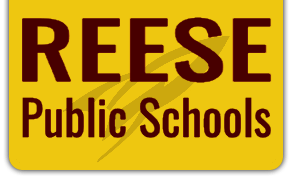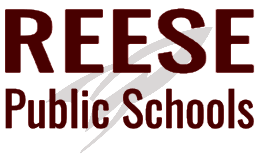Series 4000: District Employment
4200 Employee Conduct and Ethics
4201 Employee Ethics and Standards
Employees must act professionally and model high standards of behavior at all times. Employees shall perform their respective duties and responsibilities in a professional manner, using appropriate judgment. Employees must maintain a standard of behavior that reflects positively on their status as District representatives in the community and is consistent with the Michigan Code of Educational Ethics, which is incorporated herein by reference. See:
https://www.michigan.gov/documents/mde/Code_of_Ethics_653130_7.pdf
If an employee is uncertain as to a potential course of conduct, the employee should seek advice from a supervisor before proceeding.
A. Employee Ethical Conduct
- Employees must exercise objectively sound and professional judgment when engaging with students, parents/guardians, colleagues, administrators, Board members, and community members. This standard extends to employee conduct on and off school property. Ethical behavior generally includes, but is not limited to:
- complying with federal and state law;
- competently and appropriately performing duties and responsibilities for which the employee is trained or assigned;
- assigning tasks to District personnel who are qualified and hired to perform the assigned task;
- refraining from unlawful discrimination, including unlawful harassment, and retaliation as defined by Policy;
- immediately reporting suspected child abuse or neglect;
- maintaining confidential information, including student, medical, personnel, financial, and security information, as protected by statute;
- appropriately using District funds, resources, and technology;
- maintaining consistent and reliable work attendance, unless excused by the employee’s supervisor or the Superintendent or designee, as applicable;
- engaging in activities or behaviors that enhance the operational and instructional environment;
- professionally communicating with students, parents/guardians, colleagues, Board members, and community members, including through electronic means
- Completing time and effort reporting under 4201-AG
- abiding by professional, ethical, and licensing standards established by relevant governmental agencies, professional licensing boards, and professional associations, including the Michigan State Board of Education; and
- self-reporting a criminal charge and plea or conviction, as required by law.
B. Conflict of Interest
Employees shall perform their duties and responsibilities free from a prohibited conflict of interest, unless authorized by the Board or designee. Prohibited conflicts of interest include, but are not limited to:
- soliciting or accepting anything of value (such as a gift, loan, contribution, or reward), other than compensation received from the District in exchange for services provided to the District, that would influence the employee’s judgment when performing the employee’s duties;
- using public funds to purchase alcoholic beverages, jewelry, gifts, fees for golf, or any item the purchase of which is illegal, except as consistent with and permitted by Policy 3205 and Revised School Code Section 1814;
- using or authorizing the use of the employee’s public employment or any confidential information received through public employment to obtain personal, professional, political, or financial gain other than compensation received from the District in exchange for services provided to the District for the employee or a member of the employee’s immediate family, or a business with which the employee is associated;
- using or authorizing the use of District personnel, resources, property, or funds under the employee’s care and control other than in accordance with prescribed constitutional, statutory, and regulatory procedures, or using those items for personal, professional, political, or financial gain;
- providing private services, lessons, tutoring, or coaching for students assigned to the employee for additional remuneration, except as permitted by Policy 4214;
- engaging in any activity of a sexual or romantic nature with another employee(s) or contractor(s) that the employee supervises, unless the individuals are engaged to be married, married, or cohabitating;
- engaging in any activity of a sexual or romantic nature on school property or at school-sponsored events;
- directly or indirectly supervising, making, or contributing to an employment decision pertaining to a relative or significant other, or relative of a relative or significant other (as defined by Policy 4213); and
- engaging in any other activity that promotes an employee’s financial and pecuniary interests over those of the District.
C. Student Fraternization
Employees must establish and maintain professional boundaries with students, including while using personal or District technology. Employees are prohibited from direct or indirect interactions with students that do not reasonably relate to an educational purpose. Employees will behave at all times in a manner supportive of the best interests of students and the District.
Conduct identified below constitutes unprofessional conduct, subjecting the employee to discipline, including discharge, absent express Board or designee authorization. The following list illustrates prohibited behavior involving students but does not describe every kind of prohibited behavior:
- communicating about alcohol use, drug use, or sexual activity when the discussion is not appropriately related to a specific aspect of the curriculum or the employee’s duties;
- providing drugs, alcohol, tobacco, e-cigarettes, or other items students cannot possess under the District’s Student Code of Conduct;
- commenting about matters involving sex, using double entendre, or making sexually suggestive remarks with no appropriate educational purpose;
- displaying sexually inappropriate images, materials, or objects;
- offering or soliciting sexual advice, whether written, verbal, or physical;
- engaging in any activity of a sexual or romantic nature, including following graduation where the relationship arises out of an employee-student relationship;
- inappropriate kissing;
- inappropriately intruding on a student’s personal space, such as by touching unnecessarily, moving too close, or staring at a portion of the student’s body;
- communicating directly or indirectly (e.g., by phone, email, text messaging, or social media) on a matter that does not pertain to school unless the employee obtained prior parental consent. Electronic communications with students generally are to be sent simultaneously to multiple recipients and not just to one student except when the communication is clearly school related and inappropriate for persons other than the individual student to receive (e.g., grades);
- permitting a specific student to engage in conduct that is not permitted or tolerated from other students;
- inappropriately discussing with a student the student’s personal issues or problems that should normally be discussed with a parent/guardian or counselor unless the employee is the student’s family member;
- inappropriately giving a student a personal gift;
- allowing a student to live in the employee’s residence without prior parent/guardian consent unless the student is the employee’s family member, a foreign exchange student placed with the employee, or if the employee serves as the student’s foster parent or legal guardian;
- giving a student a ride in the employee’s vehicle without appropriate authorization;
- aking a student on an activity outside of school without first obtaining the express permission of the student’s parent/guardian and a District administrator;
- inviting a student to the employee’s home or residence without first obtaining the express permission of the student’s parent/guardian;
- going to a student’s home when the student’s parent/guardian or an adult chaperone is not present unless the employee is the student’s family member; or
- engaging in any other conduct which undermines the special position of trust and authority between a District employee and a student.
Employees suspecting child abuse or neglect must: (a) immediately contact Children’s Protective Services (CPS), (b) file an appropriate report with that agency as required by the Child Protection Law and Policy 4202, and (c) notify the Superintendent or designee and the building principal or supervisor that the report has been filed.
Legal authority: MCL 380.11a, 380.601a, 380.634, 380.1308a, 380.1814; MCL 722.621 et seq
Date adopted: 08/09/2021
Date revised: 06/19/2023


